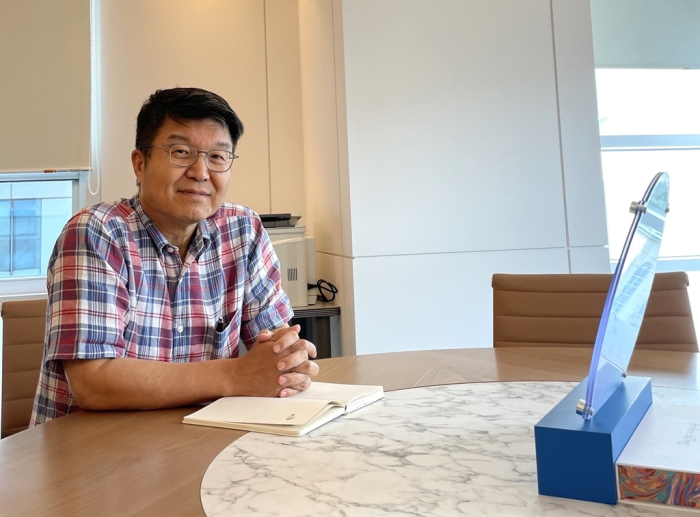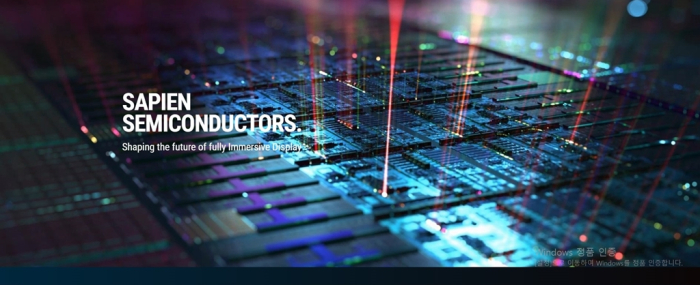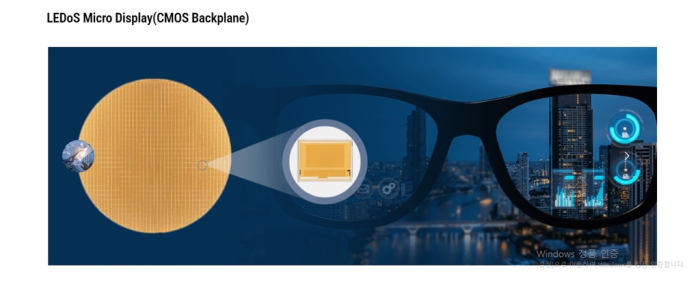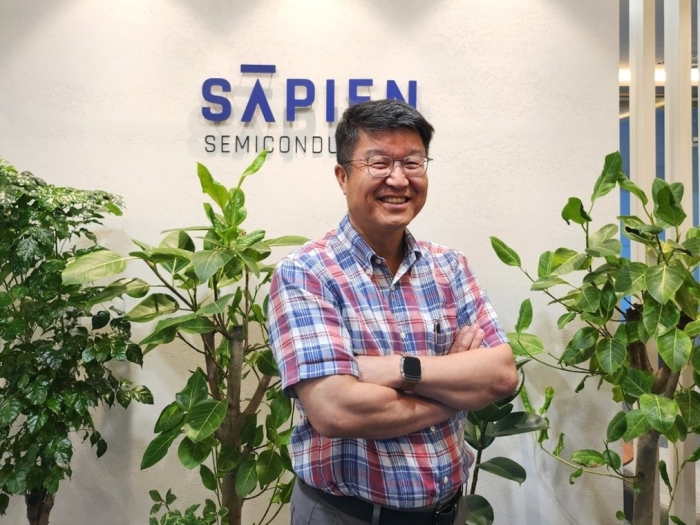Korean chipmakers
Sapien Semiconductors looks to overtake Novatek in MicroLED DDI chips
CEO Lee, a 30-year industry veteran who worked at Samsung and UNIST, aims to turn Sapien into the world's top chip design firm
By Jul 28, 2024 (Gmt+09:00)
2
Min read
Most Read
South Korea’s Rznomics inks $1.3 bn out-licensing deal with Eli Lilly


Korea’s aesthetic medicine enjoys golden era with surge in foreign spending


In China’s waterway city Hangzhou, K-beauty redefines ‘shuiguang'


Kumho Tire shuts Gwangju plant after fire, derailing record sales run


When in S. Korea, it’s a ritual: Foreigners make stops at CU, GS25, 7-Eleven



South Korea’s Sapien Semiconductors Inc. is a lesser-known startup outside of the chip industry. However, it is a little giant in the fabless chip design sphere.
Headquartered in Pangyo, the Korean version of Silicon Valley, the company recently developed a high-performance display driver chip, commonly known as DDI or DDIC, for augmented reality (AR) glasses based on micro pixel driver (MiP) technology.
The MiP tech can slash chip power consumption by 75% and reduce pixel size by 38% compared to existing DDIs, making DDI chips suitable for small-size light-emitting diodes, or MicroLEDs, used as screens for smaller devices.

Following its development of the DDI, Sapien Semiconductors signed a 4 billion won ($3 million) deal to supply MicroLED DDICs to a European client.
“With Meta Platforms as well as Apple began working on AR glasses, the industry’s interest in low-power, high-performance DDIs has grown significantly,” Lee Myung-hee, founder and chief executive of Sapien, told The Korea Economic Daily in a recent interview.
He said the DDI market for MicroLEDs, dubbed the next-generation display, is huge as such smaller LEDs require high energy efficiency and durability, making them ideal for AR glasses.
Unlike liquid crystal displays (LCDs) and organic light-emitting diodes (OLEDs), MicroLEDs work as both a display and a semiconductor, according to the CEO.

“Our DDI products target AR glasses and automotive displays,” he said.
The CEO said the company is developing a new DDI used in MicroLEDs for vehicle head-up displays (HUDs).
AIMS TO OVERTAKE NOVATEK
The CEO said Sapien Semiconductors aims to overtake Taiwan's Novatek Microelectronics Corp., the world's No. 1 company in the cutting-edge DDI design market.
“With our latest products, we expect to achieve 1 trillion won in annual sales within a decade and become the No. 1 DDI design firm,” he said.

Listed on Korea’s tech-heavy Kosdaq market earlier this year, Sapien Semiconductors is working with dozens of domestic and foreign partners to develop custom-designed ASIC products for MicroLED display drivers, particularly for extended reality (XR) device projects.
CEO Lee is an industry veteran with over 30 years of experience in mixed-signal IC design.
Before establishing Sapien Semiconductors in August 2017, he was the head of the DDI development team at Samsung Electronics Co.'s System LSI Division.
Prior to Samsung, he worked at Hyundai Autoron Co. as chief of the automotive semiconductor research center. He also worked as a professor in the Department of Electronic and Electrical Engineering at Ulsan National Institute of Science & Technology (UNIST).
Write to Jeong-Soo Hwang at hjs@hankyung.com
In-Soo Nam edited this article.
More to Read
-
 Korean chipmakersSamsung to unveil vision for chips resembling human senses at Tech Day
Korean chipmakersSamsung to unveil vision for chips resembling human senses at Tech DayAug 08, 2023 (Gmt+09:00)
3 Min read -
 ElectronicsSamsung to launch much-anticipated QD-OLED TV, expand MicroLED lines
ElectronicsSamsung to launch much-anticipated QD-OLED TV, expand MicroLED linesJul 25, 2021 (Gmt+09:00)
3 Min read -
 ElectronicsSamsung Electronics unveils 110-inch premium MicroLED TV
ElectronicsSamsung Electronics unveils 110-inch premium MicroLED TVDec 10, 2020 (Gmt+09:00)
1 Min read -
 ElectronicsSamsung launches upgraded commercial MicroLED display The Wall
ElectronicsSamsung launches upgraded commercial MicroLED display The WallJul 19, 2021 (Gmt+09:00)
1 Min read
Comment 0
LOG IN


